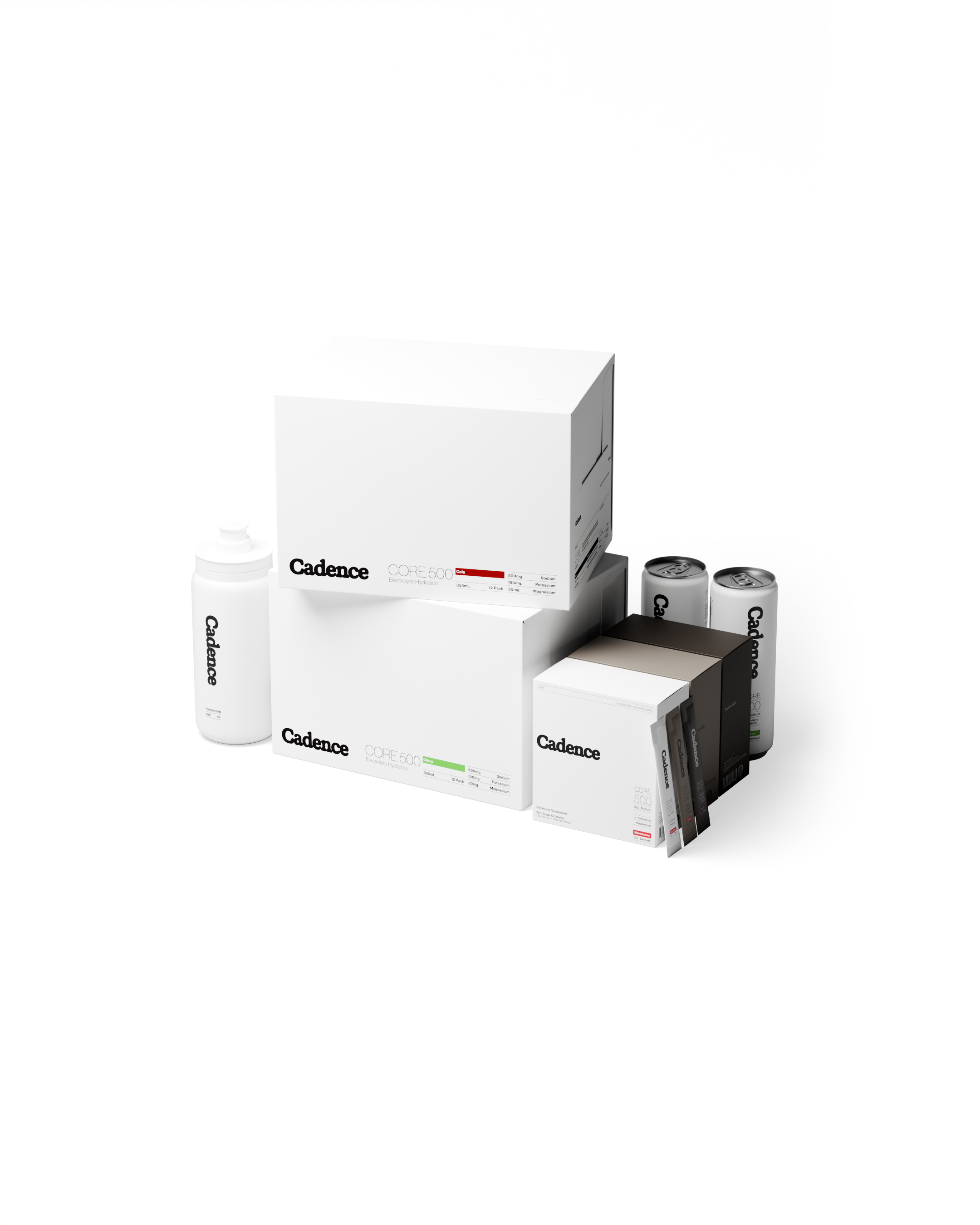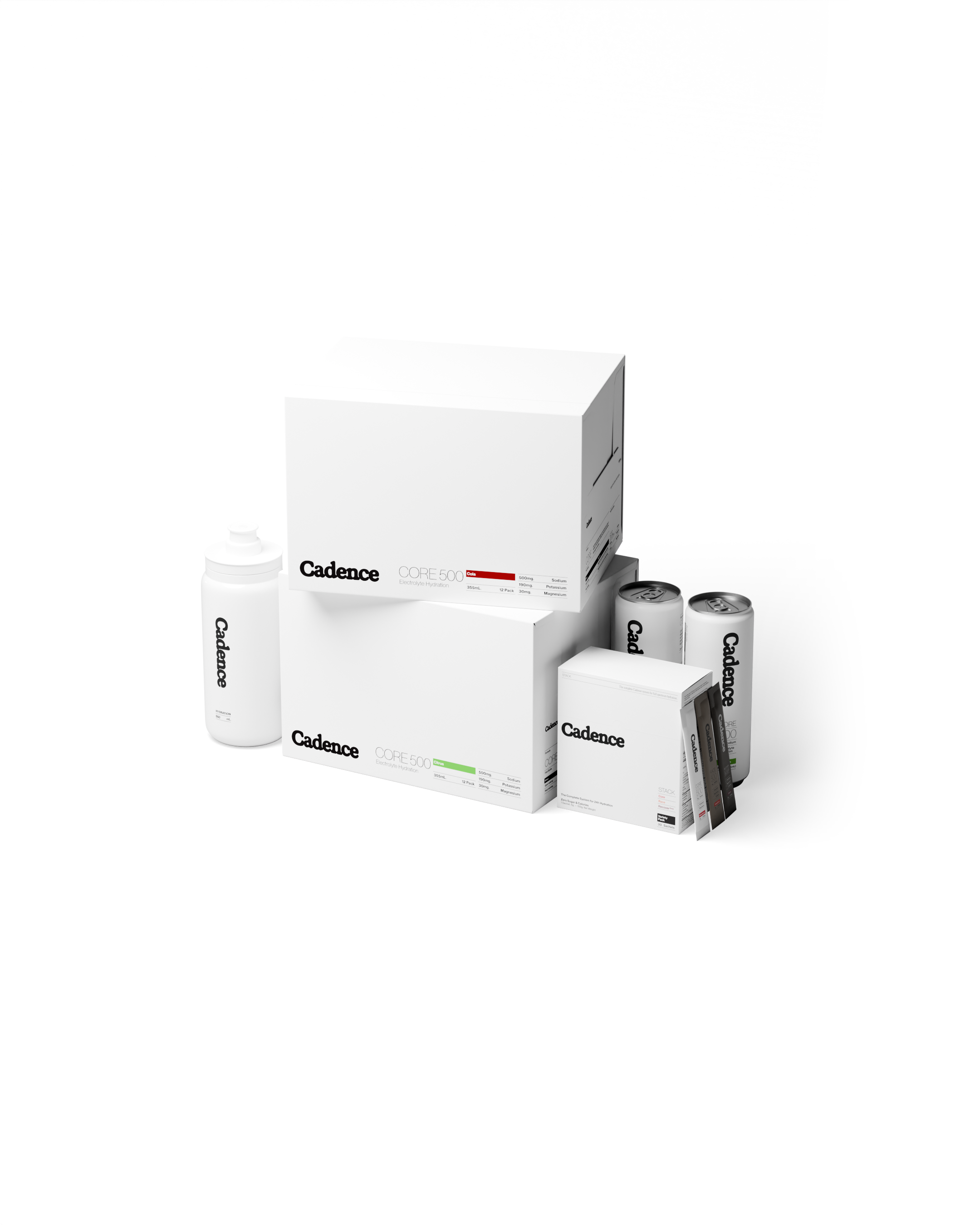Strength training has huge benefits for everyone, whether you are an elite athlete or amateur hobbyist, young or old. The benefits to muscle, metabolism, mental health, bone and beyond are vast.
This guide will review the current research and discuss what factors to consider within your diet in order to optimize adaptations to a strength training programme.
Nutrition for Fuelling Strength Training
Carbohydrates
Unlike endurance events or intense, repetitive sports such as football, resistance training is unlikely to deplete fuel stores in the muscle. Research suggests that a modest reduction of 24 - 40% of muscle glycogen is typical, even of higher volume strength sessions.
Individuals who solely follow resistance training programmes should consume around 3-4 grams of carbohydrate per kilogram of body weight per day and allow sufficient time (24-48 hours) between sessions to refill the fuel tanks.
Assuming you sandwich your strength session between two mixed meals you should be adequately fuelled to perform well (Henselmans, 2022).
However, if training fasted (8+ hours with no food/carbs) an additional 15 - 30 grams of carbohydrate before the session is likely to benefit (King et al., 2022).
This could be a rice based cereal bar, a sports drink, a large banana or a handful of dates.
If the volume of the session exceeds 10 sets per muscle group then the addition of roughly 30 grams of carbohydrate during the session could be worthy of consideration too.
Protein
A dose of 0.3-0.4 grams of protein per kilogram of body weight consumed around 2-3 hours before training is likely to be sufficient to optimize growth and repair processes, whilst also reducing muscle protein breakdown ahead of the session (Schoenfeld et al., 2018).
This should be followed by the same quantity of protein within 1 hour post session ideally.
Note that it can take at least one hour for protein to completely digest and for the constituent amino acids (building blocks) to appear in the blood. So pre-workout protein can be just as important as post-workout.
Research had initially suggested that an even distribution of protein, over 4 meals per day was perhaps optimal. Although that theory has recently been questioned (Trommelen et al., 2023), with new evidence suggesting that meeting total daily protein requirements of 1.6 to 2.2 grams per kilogram of body weight is the most significant factor (Stokes et al., 2018).
However, erring on the side of caution and sandwiching your workout with a protein-rich meal pre and post workout, and again prior to sleep is likely most practical.
Hydration
Dehydration can negatively impact your performance in strength sessions. Research indicates that a 2% loss of body mass through dehydration can reduce muscle endurance by 8.3%, muscle strength by 5.5%, and anaerobic power by 5.8% (Savoie et al., 2015).
Note that up to 71% of adults fail to meet current fluid intake recommendations and are likely dehydrated. So simply drinking enough fluid is important to your performance in the gym (Armstrong et al., 2018).
Beyond that, the addition of electrolytes to optimize fluid retention and hydration status is worthy of consideration, particularly if training early in the morning.
Research indicates that it's possible to fully rehydrate within 45 minutes after consuming just 600ml of water with added sodium (Logan-Sprenger et al., 2013). So, a large bottle of water and a Cadence Energy Hydration before your morning lift is likely a wise move.
Meal Timing
The distribution of meals throughout the day is also an important consideration to optimize adaptations. Carbohydrate intake might favor a more skewed distribution, with larger intakes before and after exercise.
Optimal performance and adaptations to strength training are likely achieved when the session is sandwiched between two mixed meals, with the pre-exercise meal around 2-3 hours before and then the post-exercise meal within 1-hour of the session.
Calories
Chronically failing to meet daily energy requirements can reduce fuel stores within the muscle and rates of muscle growth and repair (Pasiakos et al., 2010). So simply eating sufficient calories each day is critical.
Supplementation for Strength Training
Caffeine
As it relates to pre-workout nutrition, caffeine is most certainly king. This is evident from the existing body of research, with suggestions that other ingredients commonly found in energy drinks - think nootropics such as Alpha GPC, B vitamins and alike - do not make a meaningful impact beyond caffeine alone (Pereira et al., 2024).
By meaningful, we’re referring to primary endpoints that actually matter, things such as such as:
- Weight of Load
- Number of Reps
- Time taken to Run
Further added ingredients make little difference beyond marketing. Please note that we add L-theanine to our Energy Hydration Sachets to offset potential side effects of caffeine, again based on good evidence.
That said, adding caffeine before a strength session is likely to produce the greatest acute benefit to power and performance. Chronically, the benefits of caffeine on consistent training is likely to produce significant improvements in adaptations within the muscle.
Research suggests that a dose of around 3 milligrams per kilogram of body weight might be optimal (Grgic, 2018), although lower doses of 1 - 2 mg/kg might also benefit (Grgic, 2022).
This is roughly the equivalent of 1-3 espresso shots or 1-2 Cadence Energy Hydration Sachets for an average 70 kg individual.
It must be noted that if training in the afternoon or evening, it's important to consider the potential negative effects of caffeine on sleep.
Creatine
Anyone serious about strength training should be supplementing with creatine monohydrate too. Creatine supplementation has consistently shown to benefit strength and adaptations to resistance training, with significant increases in lean muscle mass and strength when both are combined, no matter what age.
The traditional dose of 5 grams per day should be sufficient for most, although research has suggested that a dose of 0.1 grams creatine per kilogram of body weight might be optimal (Cooper et al., 2013). There is some suggestion that consuming creatine post-workout is most effective, although simply consuming it consistently at any time of the day is most important.
Beta Alanine
Beta alanine supplementation is known to increase carnosine stores in the muscle. Carnosine is an intracellular buffer of hydrogen ions and helps regulate pH during exercise. Repeated, intense actions result in a rapid reduction in pH, which can impair performance, so beta alanine supplementation can essentially help you to do more intense work. Chronically over time this can contribute to greater volume and total load, and thus greater physical adaptations within the muscle.
The optimal beta alanine supplementation intervention involves a loading dose of 6-7 grams per day for 6 weeks and then a maintenance dose of 3-4 grams per day thereafter (Bellinger, 2014). Like creatine, the timing of consumption is perhaps less important than simply getting it in consistently each day.
Conclusion
For those serious about strength training, good hydration strategies combined with a well-managed diet and well-balanced meals consumed at regular intervals throughout the day is the foundation from which strength and muscle adaptations can occur. Beyond that pre-workout caffeine intake is likely to be of greatest benefit, with daily doses of creatine monohydrate and beta alanine also recommended.
References
Pereira F, Evans C, Rojas J, Curtis J, Andal A, Thakkar H, Rocanelli R, Rodriguez CC, Santana JC, Jiannine L, Antonio J. Beyond the Buzz: Do Energy Drinks Offer More Than Caffeine for Mental and Physical Tasks? Int J Exerc Sci. 2024 Aug 1;17(1):1208-1218. PMID: 39257647; PMCID: PMC11385283.
Grgic J, Trexler ET, Lazinica B, Pedisic Z. Effects of caffeine intake on muscle strength and power: a systematic review and meta-analysis. J Int Soc Sports Nutr. 2018 Mar 5;15:11. doi: 10.1186/s12970-018-0216-0. PMID: 29527137; PMCID: PMC5839013.
Grgic J. (2022). Exploring the minimum ergogenic dose of caffeine on resistance exercise performance: A meta-analytic approach. Nutrition (Burbank, Los Angeles County, Calif.), 97, 111604. https://doi.org/10.1016/j.nut.2022.111604
Henselmans, Menno, Thomas Bjørnsen, Richie Hedderman, and Fredrik Tonstad Vårvik (2022). "The Effect of Carbohydrate Intake on Strength and Resistance Training Performance: A Systematic Review" Nutrients 14, no. 4: 856. https://doi.org/10.3390/nu14040856
King, A., Helms, E., Zinn, C. et al. (2022)The Ergogenic Effects of Acute Carbohydrate Feeding on Resistance Exercise Performance: A Systematic Review and Meta-analysis. Sports Med 52, 2691–2712. https://doi.org/10.1007/s40279-022-01716-w
Pasiakos, S. M., Vislocky, L. M., Carbone, J. W., Altieri, N., Konopelski, K., Freake, H. C., Anderson, J. M., Ferrando, A. A., Wolfe, R. R., & Rodriguez, N. R. (2010). Acute energy deprivation affects skeletal muscle protein synthesis and associated intracellular signaling proteins in physically active adults. The Journal of nutrition, 140(4), 745–751. https://doi.org/10.3945/jn.109.118372
Schoenfeld, B.J., Aragon, A.A. (2018) How much protein can the body use in a single meal for muscle-building? Implications for daily protein distribution. J Int Soc Sports Nutr 15, 10. https://doi.org/10.1186/s12970-018-0215-1
Trommelen, J., van Lieshout, G. A. A., Nyakayiru, J., Holwerda, A. M., Smeets, J. S. J., Hendriks, F. K., van Kranenburg, J. M. X., Zorenc, A. H., Senden, J. M., Goessens, J. P. B., Gijsen, A. P., & van Loon, L. J. C. (2023). The anabolic response to protein ingestion during recovery from exercise has no upper limit in magnitude and duration in vivo in humans. Cell reports. Medicine, 4(12), 101324. https://doi.org/10.1016/j.xcrm.2023.101324
Stokes T, Hector AJ, Morton RW, McGlory C, Phillips SM. Recent Perspectives Regarding the Role of Dietary Protein for the Promotion of Muscle Hypertrophy with Resistance Exercise Training. Nutrients. 2018 Feb 7;10(2):180. doi: 10.3390/nu10020180. PMID: 29414855; PMCID: PMC5852756.
Cooper R, Naclerio F, Allgrove J, Jimenez A. Creatine supplementation with specific view to exercise/sports performance: an update. J Int Soc Sports Nutr. 2012 Jul 20;9(1):33. doi: 10.1186/1550-2783-9-33. PMID: 22817979; PMCID: PMC3407788.
Armstrong, Lawrence E., and Evan C. Johnson (2018). "Water Intake, Water Balance, and the Elusive Daily Water Requirement" Nutrients 10, no. 12: 1928. https://doi.org/10.3390/nu10121928
Logan-Sprenger, H. M., & Spriet, L. L. (2013). The acute effects of fluid intake on urine specific gravity and fluid retention in a mildly dehydrated state. Journal of strength and conditioning research, 27(4), 1002–1008. https://doi.org/10.1519/JSC.0b013e31826052c7
Bellinger P. M. (2014). β-Alanine supplementation for athletic performance: an update. Journal of strength and conditioning research, 28(6), 1751–1770. https://doi.org/10.1519/JSC.0000000000000327
